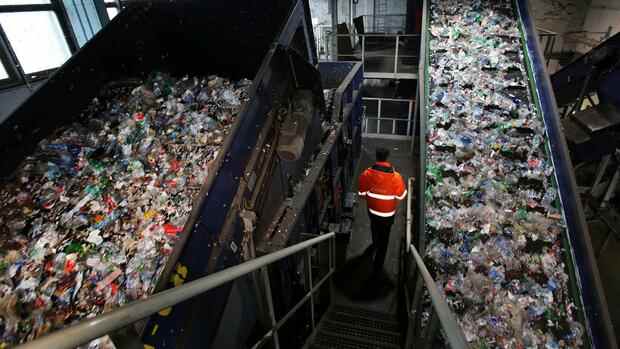(Photo: picture alliance / dpa)
Dusseldorf The consumer goods companies have set themselves high goals for the new year: They want to drastically increase the proportion of used plastic in packaging and thus save tens of thousands of tons of CO2. The EU is also likely to set binding targets this year; for plastic bottles, a proportion of 30 percent recycled material by 2030 has already been agreed.
But these ambitious plans could remain an illusion, because the road to get there is not only long – it will also cost billions, as experts warn. The German economy has to invest at least 100 million euros for every one percent increase in the proportion of recycled materials, calculates Roman Maletz, who teaches waste and recycling management at the Technical University of Dresden. This means that just increasing the share from an estimated 13 percent today to 30 percent would cost at least 1.7 billion euros. Most of this would have to be shouldered by consumer goods companies such as Henkel, Beiersdorf or L’Oréal.
Read on now
Get access to this and every other article in the
Web and in our app for 4 weeks free of charge.
Continue
Read on now
Get access to this and every other article in the
Web and in our app for 4 weeks free of charge.
Continue
